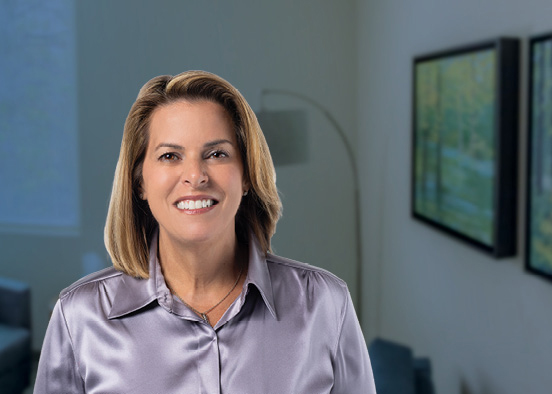
It didn’t take long for the professionals and counselors-in-training at Florida Gulf Coast University’s Community Counseling Center (CCC) to adapt when the coronavirus spiraled last spring into a full-blown, continuing pandemic. Within two days of seeing their last clients in person last March, CCC counselors pivoted to conducting sessions online to help people cope with universal feelings of anxiety, anger, isolation, depression and loss — many for the first time in their lives.
Along with nurses and teachers, physician assistants and scientists, engineers and entrepreneurs, mental health counselors are part of a frontline legion of ordinary people who became extraordinary in challenging times and demonstrated the impact of FGCU in communities near and far.
“We knew that for us to be able to continue providing quality services to our clients and quality training for our students, we needed to make a shift — a very abrupt shift,” said Alise Bartley, CCC director and clinical assistant professor in the Department of Counseling in Marieb College of Health & Human Services at Florida Gulf Coast University.
“Many of us are struggling with how long this has gone on, and we’ve experienced a lot of loss: the loss of independence, the loss of being able to make our own choices, the loss of being in a room with someone or offering someone a hug. We know that levels of depression and anxiety have tripled since before the pandemic. Telecounseling is an opportunity for us to learn to cope with the pandemic and identify ways to make sure we are connecting with others.”
Research shows it’s working. The center conducted a study comparing the client experience in face-to-face sessions versus virtual sessions, and the results indicated that clients got better at the same rate, Bartley said. The research will be presented at a national conference in April.
“People are adapting to using telehealth platforms – it’s become more the norm,” Bartley said. “However, because there’s such an incredible volume of people needing services right now, many community organizations have waiting lists. There’s definitely need in our community regarding mental health counseling, but there aren’t enough resources. Right now in Southwest Florida, we have one mental health provider for every 750 people. It’s really frightening to see the gap.”
In addition to helping fill the shortage now with its counseling center services, FGCU is shaping the next generation of mental health professionals through its rigorous counseling degree programs. With a passionate faculty and a cohort-based model that ensures students receive personal attention, the programs’ graduates are so well prepared that 100% are employed within three months of earning a degree.
“Unfortunately, we just don’t have enough room to accommodate all applicants seeking admission to our programs. We don’t have enough faculty to teach all those who are interested in helping others,” Bartley said. “The bottom line is we need to have continued awareness of the need and continue putting resources in mental health.”
She’s part of a consortium working to address the shortage in resources and also to break down the stigma that still surrounds mental health issues.
“Many of us haven’t had to struggle with mental and emotional disorders until now,” she said. “I want people to understand that just as we all have physical health issues, we all have mental health issues. This has been so hard for all of us. This has been a huge change in our society, so of course we’re going to have mental health issues.”
Bartley is especially concerned about the long-term effects of the pandemic on children, who have been isolated and masked at a critical time of life. How will it affect their long-term development?
“Parents are doing everything they can, but this is really, really hard on families,” she said. “One research study said that 75% of mothers have indicated they have a decreased quality of life now as opposed to last year. We’re asking a lot of parents. If you know of anyone who has a child, offer support in any way you can.”
The Community Counseling Center at FGCU is open to the Southwest Florida community. The fee is $25 an hour or whatever you make an hour – whichever is less – to make counseling affordable to all. Potential clients will also take part in phone assessment to make sure the services the center offers are the right fit. For details, visit the center’s website or call 239-745-4777.[/vc_column_text][vc_column_text]
SUPPORT THE FRONTLINES
This is part of a series of stories spotlighting FGCU students, faculty and alumni making an impact during the pandemic.
 By investing in a scholarship or a program at FGCU, you can empower more individuals like them to make a difference where it matters most — on the frontlines. For information on how you can help, call FGCU Advancement at 239-590-1067, or visit FGCU on the Frontlines to see more stories and give online.[/vc_column_text]
By investing in a scholarship or a program at FGCU, you can empower more individuals like them to make a difference where it matters most — on the frontlines. For information on how you can help, call FGCU Advancement at 239-590-1067, or visit FGCU on the Frontlines to see more stories and give online.[/vc_column_text]